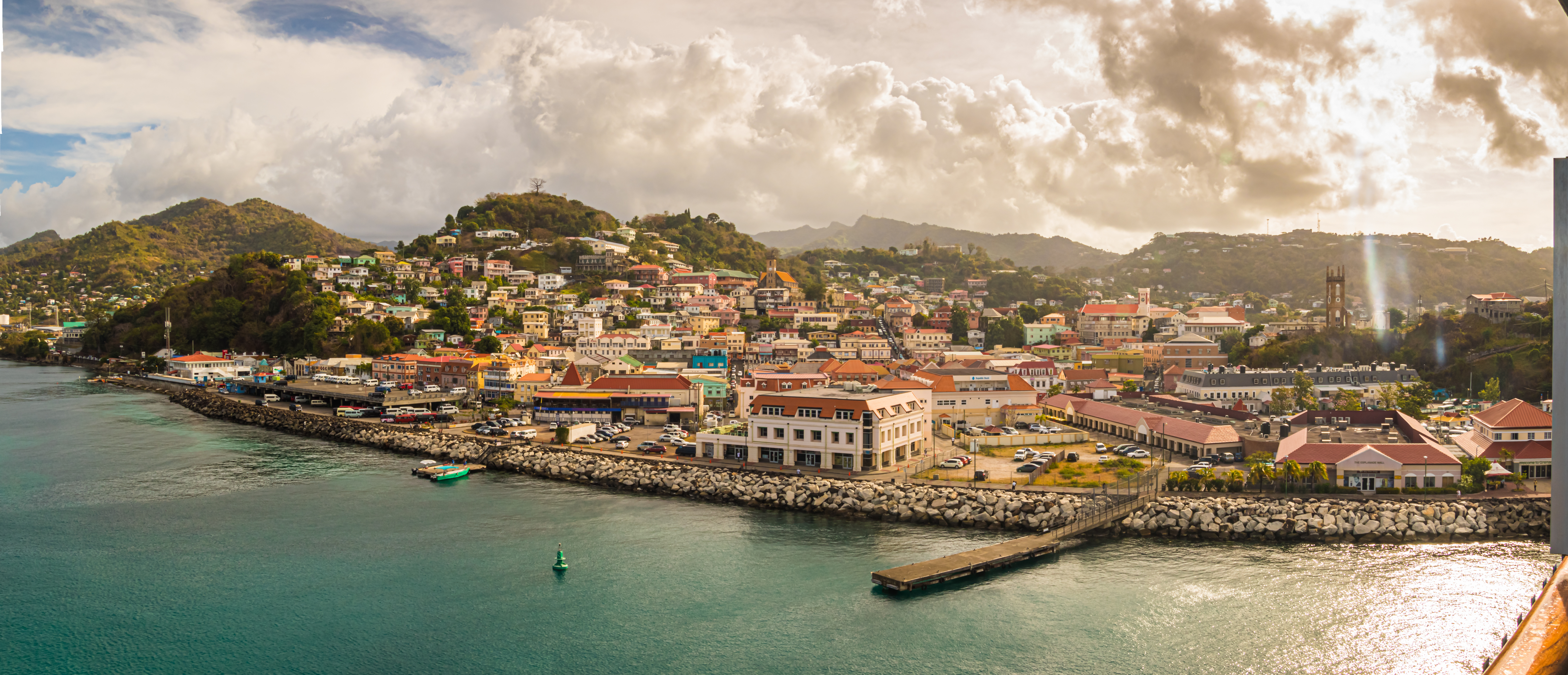Small Island Developing States Advance Climate Action with Partnership Support

Photo: Grenada St. George Einfahrt in den Hafen / Panorama
In a powerful joint statement following the Pacific Island Forum on 14 July, leaders from the Pacific region endorsed a communique declaring a climate emergency and demanding immediate action from global leaders to reduce greenhouse gas (GHG) emissions to prevent the more catastrophic effects of climate change. While the specific communique has yet to be released publicly, the central message is clear: Small Island Developing States (SIDS) represent some of the most vulnerable and at-risk countries to climate change, and as a result, their calls for drastic cuts to GHG emissions are a matter of urgency and survival.
In an Insight Brief on SIDS developed by the NDC Partnership as a part of its ongoing efforts to share findings from its in-country work, the Partnership found that SIDS are increasingly at the forefront of climate action despite being historically low emitters themselves. These requests confirm both the need for urgent climate action and the commitments of these countries to act now. The Partnership’s work is rooted in its responses to Requests for Support from Country Members to strengthen and implement their NDCs. The Partnership works closely with the SIDS, more than half of which (20 out of 38) are Country Members, and 16 of which have directly benefitted from Partnership support.
Altogether, 16 SIDS Members have sent 871 Requests for Support to the Partnership, 73% of which have received support. Out of the 166 Partners providing support through the Partnership, 97 Partners are actively supporting SIDS across the following sectors:
- Adaptation and Resilience: Many Requests for Support to the Partnership focus on oceans and coasts, as well as disaster-risk reduction, including coastal protection, coral conservation, or projects in the blue economy.
- Finance Mobilization: Finance requests frequently involve Partners designing, developing, and implementing innovative finance solutions through a multi-country approach, such as the development in Fiji of a renewable-energy access fund that covers other islands in the region. In another example from Belize, the country government set up a debt-for-climate, nature-swap mechanism with support from the Commonwealth.
- Energy: In the energy sector, Requests for Support focus on three main areas (1) the development of renewable energy capacities, (2) energy finance, and 3) energy efficiency.
- Blue Carbon: Blue Carbon requests are another critical area of support for SIDS. For example, Belize conducted research studies to assess the blue carbon potential and adaptation co-benefits of coastal ecosystems to inform its NDC targets, while the Seychelles’ national development strategy prioritizes both sequestering and storing blue carbon and conserving and restoring coastal and marine environments.
Another example of SIDS’ requesting Partnership support comes from Grenada, which has committed to reducing GHG emissions by 40% by 2030. To accomplish this goal, the country is looking to increase the use of renewable energy. Historically, Grenada has relied on imported fossil fuels, leaving it vulnerable to oil-price fluctuations, exacerbating poverty in the country, and leading to a larger carbon footprint compared to other SIDS. As the energy sector contributes to 70% of Grenada’s carbon emissions, greening this sector will have a profound impact on the country and reduce its GHG emissions.
To support Grenada in its green energy transition, the NDC Partnership helped the government to develop a comprehensive plan to reach its climate goals with a focus on the energy sector. By working with key government ministries, the NDC Partnership supported Grenada in updating national energy legislation to codify its renewable energy commitments into law, and to develop a resource-mobilization strategy so the country can attract the climate financing required to support a green energy transition.
In recognition of the vulnerability of SIDS to climate change, the Partnership has increased its commitments and support to SIDS in recent years, especially as the urgency of climate action in these countries has become dire due to sea level rise. Looking forward, the Partnership will continue to support the efforts of SIDS to adapt to and mitigate the worst effects of climate change.
